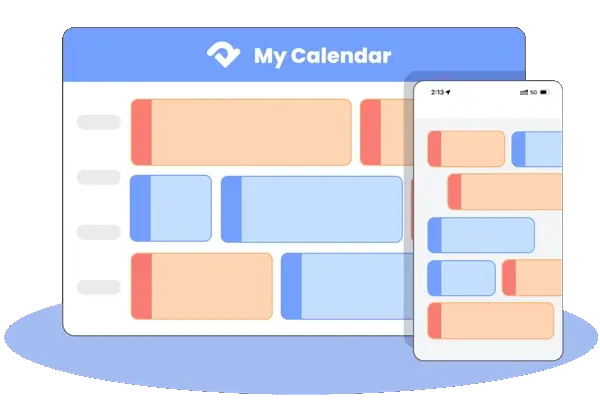More travelers now book hotels on their phones. Over half of all hotel reservations worldwide happen on smartphones. For hotel managers, this brings both chances and challenges. A website that doesn’t work well on phones can cause guests to give up on booking, lose you money, and leave customers unhappy. But if your site works smoothly on mobile, more people will complete their bookings and book directly with you.
This guide shares practical ways to make your hotel website better for phone users. The goal is to help it load quickly, feel easy to use, and turn visitors into guests without hassle.
Why Mobile Booking Matters Now More Than Ever
More travelers now use phones to book hotels than ever before. People want to find and reserve rooms quickly and easily, whether they’re looking for a last-minute stay or planning a full trip. This change is happening for two main reasons:
- Convenience: People use phones while they’re out and about. They might be at the airport, on a train, or just suddenly deciding on a weekend trip. A website that works well on phones lets them search and book without needing a computer .
- Google Rules: Google now looks at your phone website first when deciding search rankings. If your site is slow or hard to use on phones, Google will push it lower in results. That means fewer people will find you .
Not fixing your mobile site costs you money. Visitors get frustrated and leave before booking, forcing you to rely more on expensive booking sites. By making your site work great on phones, you’ll get more direct bookings and build a stronger business .
Key Challenges in Mobile Bookings
Before looking at solutions, it’s essential to understand the barriers that stop users from completing a booking:
- Slow loading times: If a page takes more than three seconds to load, users abandon it.
- Complex navigation: Tiny text, hidden menus, and buttons too close together cause frustration.
- Long booking forms: Guests dislike typing extensive information on a small screen.
- Lack of mobile payment options: Travelers want quick payment methods like Apple Pay or Google Pay.
- Unclear pricing or hidden fees: Transparency is crucial for trust and decision-making.
These problems can be solved with thoughtful design and optimization practices.
Practical Strategies to Improve Mobile Booking Experience
1. Improve Website Speed for Instant Access
Speed is the backbone of mobile optimization. A delay of even one second can reduce conversions by up to 7%. To boost performance:
- Compress images without losing quality. Use tools like TinyPNG or WebP format to reduce image weight.
- Enable browser caching. Store elements locally so returning visitors load pages faster.
- Minimize scripts and plugins. Remove unnecessary third-party code that slows down performance.
- Use a reliable hosting provider with CDN. Content Delivery Networks ensure faster global access for international guests.
Check your speed using Google PageSpeed Insights and aim for under three seconds.
2. Use Responsive and Thumb-Friendly Design
Guests interact with your website on different devices and screen sizes. A responsive layout ensures the site adapts to all formats without breaking.
- Simplify navigation menus. Use clear labels and large touch targets. Avoid drop-down lists with too many options.
- Make booking buttons prominent. The “Book Now” button should be visible above the fold and easy to tap with one hand.
- Choose legible fonts and sufficient spacing. Avoid crammed text and make sure buttons aren’t too close together.
- Design for single-hand use. Place critical actions where thumbs naturally rest on the screen.
A clutter-free, intuitive design keeps users engaged and reduces bounce rates.
3. Streamline the Booking Process
Every extra step in the booking flow risks losing a customer. Simplifying the process increases conversions:
- Reduce the number of form fields. Ask only for essential details like name, dates, and payment info. Use autofill to save time.
- Show a progress indicator. Let users know how many steps remain to avoid uncertainty.
- Enable guest checkout. For quick bookings, allow users to confirm without creating an account.
- Keep confirmation simple. Provide a clear summary before final payment to build confidence.
A booking journey of three to four steps is ideal for mobile users.
4. Optimize Visual Content for Mobile
High-quality visuals sell rooms, but they should not slow down the site. Optimize images and videos for smaller screens:
- Use image sliders instead of large galleries. Allow swiping for convenience.
- Add clear captions and feature highlights. Focus on what matters—bed size, amenities, and view.
- Avoid auto-playing videos. They increase load time and frustrate users on limited data.
Mobile guests make decisions fast, so concise visuals with key selling points work best.
5. Offer Mobile Payment Options
Payment friction is one of the top reasons users abandon bookings. Make transactions effortless:
- Integrate digital wallets like Apple Pay and Google Pay. They allow one-tap payments without manual entry.
- Support popular methods based on your target market. Include local solutions like PayPal or regional gateways.
- Secure the payment process. Use SSL certificates and display security badges to build trust.
Fast and secure payments improve the user experience and reduce cart abandonment.
6. Personalize the Mobile Experience
Personalization enhances engagement and drives loyalty. For mobile users:
- Enable location-based offers. Suggest nearby attractions, local deals, or last-minute discounts.
- Show recently viewed rooms. Make it easy for guests to return and book.
- Send mobile-friendly reminders. If a user abandons a booking, send SMS or push notifications with an incentive to complete it.
Smart personalization makes your site more relevant and keeps guests coming back.
7. Boost Mobile SEO for Better Visibility
Even the best design fails if travelers cannot find your site. Mobile SEO is essential for search rankings:
- Use mobile-friendly site structure. Avoid pop-ups that block content and keep URLs clean.
- Optimize for voice search. Many travelers search on mobile using voice commands.
- Create fast-loading landing pages with targeted keywords. Include terms like “mobile hotel booking” and “direct booking deals.”
Better SEO attracts organic traffic and reduces reliance on OTAs.
Conclusion
Making your hotel website work well on phones isn’t just about tech stuff. It’s about making things easy for your guests and helping your hotel make more money. When you focus on mobile, you’ll show up higher in searches, get more direct bookings, and give guests a smooth experience from the moment they start thinking about a trip.
Start by checking your mobile site for problems. Every fix you make means more people will actually book, and you’ll earn more. Since everyone books trips on their phones now, making sure your hotel is easy to find and book is the most important thing you can do today.

